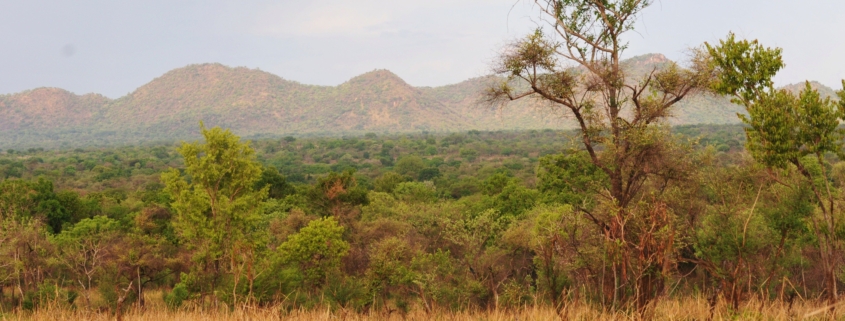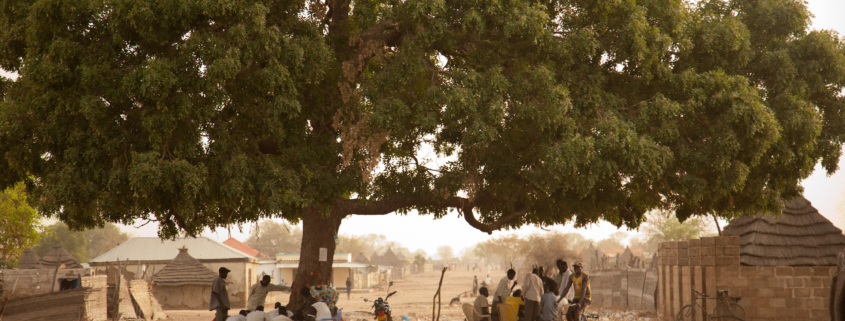South Sudan is the youngest state in the world. Yet, since its independence, several shocks and crises brought food security to the edge of collapse. Both humanitarian and development agencies have adopted multisector interventions to enhance resilience. This paper provides data-driven evidence from a randomized impact evaluation in Sudan’s Eastern Equatoria state. The intervention adopted a multifaceted strategy to improve the resilience and food security of vulnerable households. Results suggest that the initiative was successful…
repository
CSRF Research Repository
The CSRF Research Repository aims to support greater contextual knowledge for policy makers, programme managers, and implementers by providing a searchable repository of research, analysis, and resources, and providing periodic updates on new research and analysis.
In our last blog post titled Leave No ‘R’ Behind: Understanding the Importance of Fostering Resilience I in the Context of Fragility, Conflict, and Violence, we discussed how experiences and understanding of resilience differ across different levels of society. Building on that discussion, the following discussion explores programmatic approaches that can be used by the World Bank and other development and aid partners to foster resilience. Several elements of program design and implementation can be…
Despite the signing of the revitalized peace agreement in 2018, violence continues to impact communities across South Sudan. Almost 4 million South Sudanese are displaced, including 1.7 million internally displaced people and 2.3 million refugees abroad, with women and children disproportionately affected. In the face of these challenges, however, communities across the country continue to draw on both established and new strategies to face the impacts of fragility, conflict, and violence (FCV). These strategies offer…
South Sudan is at a crossroads in its recovery, reconstruction, and development. With weak institutions and recurring cycles of violence, South Sudan remains caught in a web of fragility and economic stagnation a decade after independence. This Country Economic Memorandum (CEM) discusses South Sudan’s economic performance since independence, highlighting the need for the country to leverage its natural capital in the agriculture and oil sectors to support recovery and resilience. Economic recovery has stalled in…
Against a backdrop of protracted conflict and civil war, South Sudan has experienced a series of stop-start peace processes. Innovative approaches are now needed at national and local level to address the root causes of violence. This report synthesises the findings of the Network for Innovative Resilience-Building in South Sudan. It shows the importance of understanding conflict drivers and focusing on longer-term peace outcomes. Gaps in knowledge, evidence and learning are also identified. Download
Resilience has been a commonly used concept among development, humanitarian, and peacebuilding actors in South Sudan for some years and putting it into practice has become increasingly relevant in the current context. There are a variety of ways in which resilience is interpreted and practiced in South Sudan. This can impact on coordination and learning efforts among donors and aid agencies, as well as dynamics within coordination fora, and conflict dynamics among South Sudanese communities….
In this brief Saferworld provides a context update about the current situation in the town of Bentiu – the capital of the oil-rich Unity state. Saferworld presents safety and security challenges identified by communities, authorities and civil society such as revenge killings, cattle raiding, gender-based violence, environmental pollution and unemployment in Bentiu town and Protection of Civilian (PoC) site. Saferworld also provides recommendations for how best to address these challenges for all levels of government and communities to consider. Download
This report describes the main findings and recommendations of research carried out for the Partners for Resilience (PfR) alliance on how the PfR programme is affected by – or may affect – conflict. Although PfR works in different conflict-affected countries and contexts, it does not address conflict or insecurity explicitly. This is potentially problematic for PfR’s effectiveness. It is therefore important to consider whether PfR could or should address conflict more explicitly. For this research,…
This review explores the magnitude of this year’s flood and its impacts in Bor Town. We used a boat to get us around the town surveying the extent of flood water and measuring its depth in the streets and in the residential neighborhoods. We also used the GPS to capture the geographical coordinates submerged under water, showing exactly the depth of flood in the town by locations. Download
In protracted crises where there are weak or nonexistent formal governance structures, people depend heavily on local systems—both social and economic—to get by. Communities themselves are often the first responders in a crisis, reacting long before humanitarian actors arrive. This report examines how social connections during times of crisis enable populations to manage shocks and stresses in South Sudan. It found that: In addition to assistance from external aid actors, households rely on support shared…

Some Infos
Lorem ipsum dolor sit amet, consectetuer adipiscing elit. Aenean commodo ligula eget dolor.
Pages
- About Our County Profiles
- Blog
- Case Studies Grid
- Central Equatoria
- Conflict Sensitivity Resource Facility South Sudan
- Contact Us
- Contribute a Repository Article
- County Profile HTML links
- County Profiles
- COVID-19 HUB
- Covid-19 information page
- CSRF About Us
- CSRF Helpdesk
- CSRF Helpdesk Form
- CSRF Login
- Dashboard
- Deliverables
- Demo
- Events
- Forgot password
- Guides, Tools and Checklists
- Helpdesk
- Home
- Latest
- Looker Studio
- Subscribe


